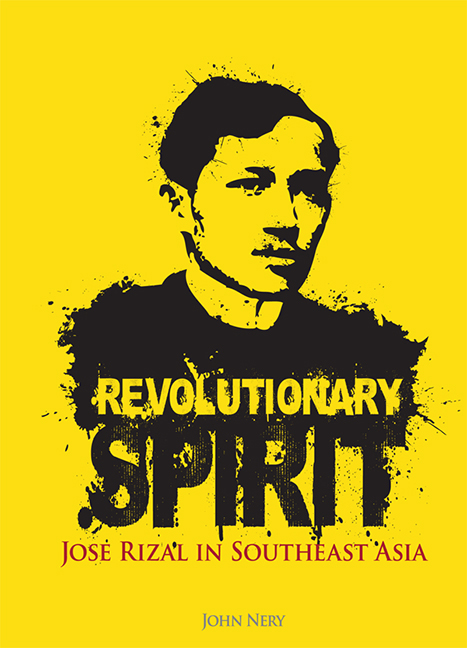Book contents
- Frontmatter
- Dedication
- Epigraph
- Contents
- Foreword
- Message
- Preface
- Acknowledgements
- INTRODUCTION The Uses of Error A Rizal Chronology
- 1 TURNING POINTS
- 2 “THE VERY SOUL OF THIS REBELLION”
- 3 DOCTOR RIZAL
- 4 “HALFBLOED”
- 5 “NO MARX OR LENIN”
- 6 UNDER THE SOUTHERN SUN
- 7 THE HOPE OF MILLIONS IN ASIA
- 8 “HIS NAME IS SWEET IN OUR MEMORY”
- 9 THE MYTH BUSTERS
- 10 “A GREAT HISTORICAL EXPERIMENT”
- Epilogue
- Appendices
- References
- Index
Foreword
Published online by Cambridge University Press: 21 October 2015
- Frontmatter
- Dedication
- Epigraph
- Contents
- Foreword
- Message
- Preface
- Acknowledgements
- INTRODUCTION The Uses of Error A Rizal Chronology
- 1 TURNING POINTS
- 2 “THE VERY SOUL OF THIS REBELLION”
- 3 DOCTOR RIZAL
- 4 “HALFBLOED”
- 5 “NO MARX OR LENIN”
- 6 UNDER THE SOUTHERN SUN
- 7 THE HOPE OF MILLIONS IN ASIA
- 8 “HIS NAME IS SWEET IN OUR MEMORY”
- 9 THE MYTH BUSTERS
- 10 “A GREAT HISTORICAL EXPERIMENT”
- Epilogue
- Appendices
- References
- Index
Summary
On the 150th birth anniversary of Rizal, the publication of this stringently researched study enables us to relate with more conviction our pride in having a novelist lay down the firmest and most durable foundation of the Filipino nation. With the journalist's eagle eye, John Nery traces that influence which Rizal wields in Southeast Asia to this very day, when the enduring vestiges of colonialism are still so much a determinant of our future. Rizal did this with his pen as well as with his life; as the American literary scholar Roland Greene said, “he was the first post-colonial writer”.
Nery's search confirms the prescience, the brilliance and profundity of Rizal's thinking as also expressed in his letters and articles. For instance, and this has not been clearly understood by many of those who studied his life, though seemingly opposed to revolution Rizal among the early Filipinos who railed against Spanish colonialism was in fact one of its first and staunchest believers.
But it is his novels, his literary creations which gave Rizal his marmoreal reputation; it is to Rizal's credit that he elected to use the literary art. He could just have published those manifestos, those inciting articles as did his colleagues in the Propaganda Movement. But he chose literature to magnify and broadcast his deepest feelings, his dreams for his unhappy country. He saw that literature — the noblest of the arts — would prevail long after the fact, that it is literature that renders history alive.
So many scholars miss this significant distinction; like so many illiterate Filipino leaders, they do not regard novelists and their fictions as the truest building blocks in the foundation of a nation. All too often, when they exalt Rizal, they forget it is the committed writers who are his real heirs.
Nery discusses yet another novelist who influenced Rizal. In 1860, Eduard Douwes Dekker (pen name: Multatuli), who had served in the Dutch East Indies (now Indonesia), published Max Havelaar, Or the Coffee Auctions of a Dutch Trading Company in Amsterdam. Rizal wrote to his friend Ferdinand Blumentritt how he envied Multatuli whose novel was “so viciously anti-colonial — but was so beautiful”. Two generations later, in that very same setting of Multatuli's fiction, two Indonesians — the Founding Father of Indonesia, Sukarno, and that country's foremost novelist, Pramoedya Ananta Toer — also read Rizal.
- Type
- Chapter
- Information
- Revolutionary SpiritJose Rizal in Southeast Asia, pp. xi - xivPublisher: ISEAS–Yusof Ishak InstitutePrint publication year: 2011



